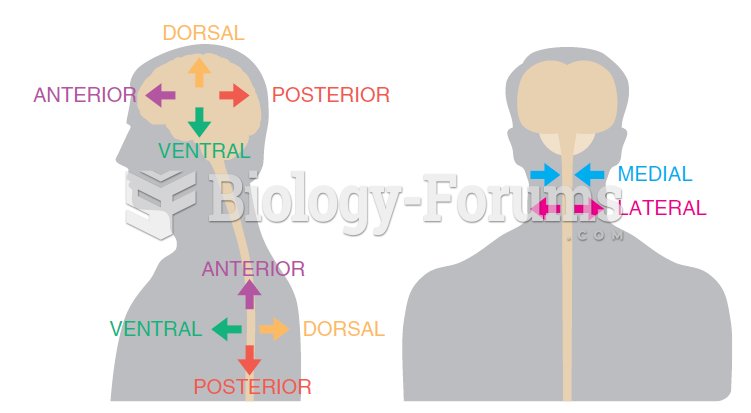|
|
|
Oxytocin is recommended only for pregnancies that have a medical reason for inducing labor (such as eclampsia) and is not recommended for elective procedures or for making the birthing process more convenient.
There are more nerve cells in one human brain than there are stars in the Milky Way.
Anti-aging claims should not ever be believed. There is no supplement, medication, or any other substance that has been proven to slow or stop the aging process.
GI conditions that will keep you out of the U.S. armed services include ulcers, varices, fistulas, esophagitis, gastritis, congenital abnormalities, inflammatory bowel disease, enteritis, colitis, proctitis, duodenal diverticula, malabsorption syndromes, hepatitis, cirrhosis, cysts, abscesses, pancreatitis, polyps, certain hemorrhoids, splenomegaly, hernias, recent abdominal surgery, GI bypass or stomach stapling, and artificial GI openings.
Drugs are in development that may cure asthma and hay fever once and for all. They target leukotrienes, which are known to cause tightening of the air passages in the lungs and increase mucus productions in nasal passages.
 The slight (5 microsecond) difference in the firing of the companion cylinders is enough time to ...
The slight (5 microsecond) difference in the firing of the companion cylinders is enough time to ...
 Anatomical directions in a human. Notice that the directions in the cerebral hemispheres are rotated ...
Anatomical directions in a human. Notice that the directions in the cerebral hemispheres are rotated ...





